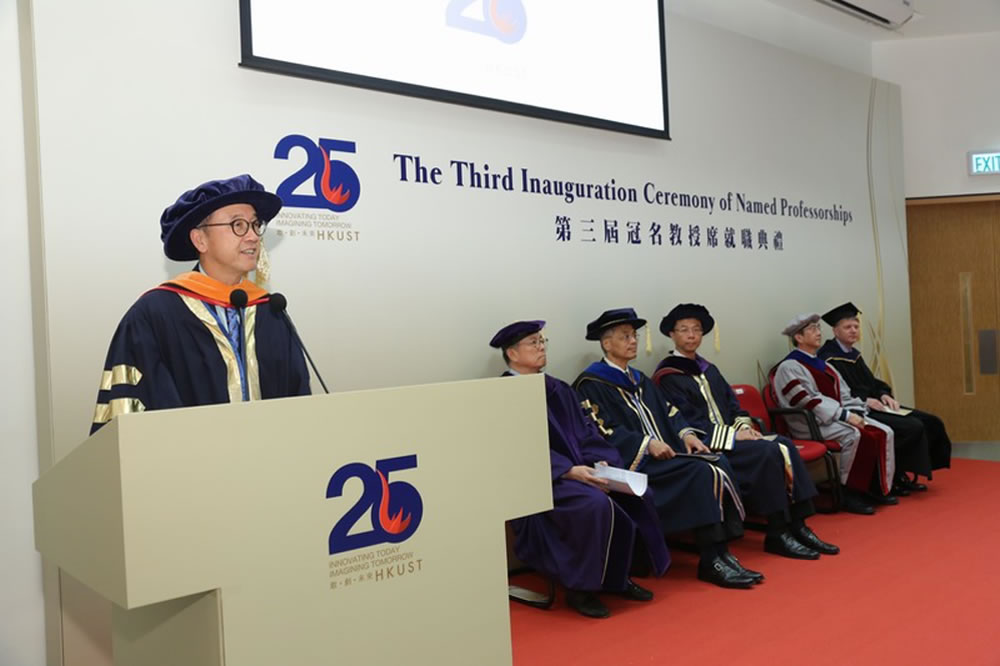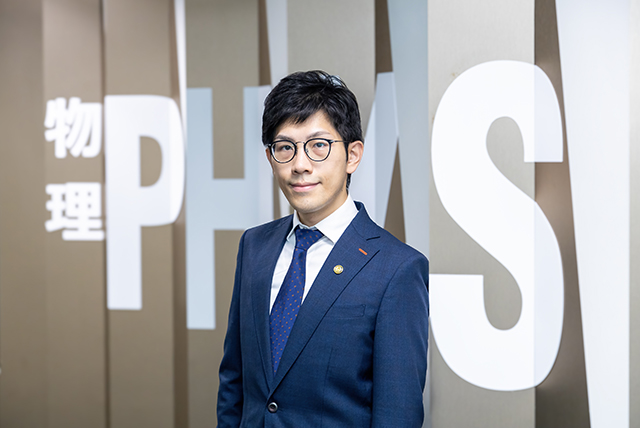It is often helpful to visualize electrons as tiny particles spinning around inside atoms. However, this classical picture can break down when quantum mechanical effects come into play. In quantum states, electrons interact in complex and unexpected ways. The unconventional behaviors of quantum materials are already being harnessed to power technological advancement in the era of Industry 4.0.
It is in this field of study that Professor Adrian Hoi Chun Po, HKUST’s Hari Harilela Assistant Professor of Physics, is carving out a pioneering research career. As a condensed matter theorist, Prof. Po belongs to one of the most active fields of study in modern physics. He is broadly interested in the collective phenomena that arise when a large number of quantum particles interact, along with the intriguing interplay between symmetry, topology, and locality in quantum materials.
Prof. Po works across the multiple areas of strongly correlated electrons, magnetism and superconductivity, the fundamentals of band theory, topological materials discovery, 2D and moiré materials, and the relationship between quantum dynamics and quantum information theory. This panoply of interests has developed over an illustrious academic and research career, which brought Prof. Po to HKUST in 2021.
Growing up in Hong Kong, Prof. Po obtained his bachelor’s degree from the Chinese University of Hong Kong in 2013. He embarked on doctoral studies at the University of California, Berkeley and completed his Ph.D. at Harvard University, obtaining an M.A. from Berkeley along the way. After graduating from his Ph.D. in 2018, Prof. Po served as a postdoctoral fellow in the Department of Physics at the Massachusetts Institute of Technology (MIT). In 2021, he returned to Hong Kong to take up the position of Assistant Professor in HKUST’s Department of Physics.
Prof. Po is a contributor to and reviewer for some of the field’s most prestigious scientific journals, including Nature, Science, and Physical Review X. Recent publications by Prof. Po in Nature and Nature Communications concerned the discovery of topological materials, and other peer-reviewed papers in the last few years have addressed topics ranging from superconductivity to antiferromagnetism.
Prof. Po has received a host of honors and awards for his research, teaching, and service to the field. During his doctoral studies, he received the Outstanding Graduate Student Instructor Award and the Hellman Graduate Award from the University of California, Berkeley. From 2018 to 2021, Prof. Po was the recipient of an honorary Croucher Foundation Fellowship for Postdoctoral Research, along with MIT’s Pappalardo Postdoctoral Fellowship.
His research is currently receiving support from a Croucher Tak Wah Mak Innovation Award. In this ongoing work, Prof. Po addresses the obstacles to understanding quantum many-body states, whose specification requires considerable computational resources. Prof. Po proposes to combine two major approaches to identifying experimentally relevant properties of quantum systems—the renormalization group and newer tensor network methods—to study highly entangled quantum many-body states. The goal is to develop a framework that could aid in the theoretical description of various quantum materials.
For this and myriad other achievements, HKUST is delighted to award the Hari Harilela Professorship to Prof. Po.















